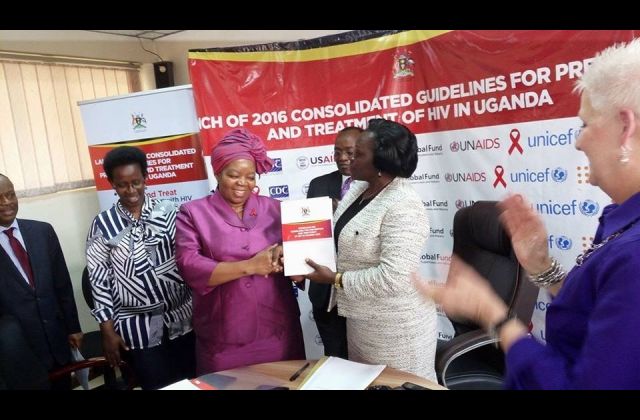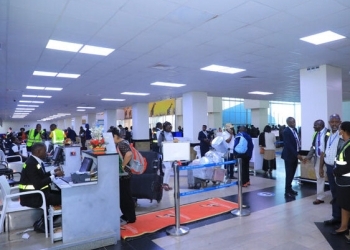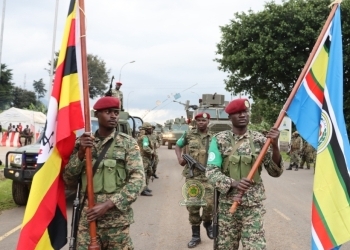
The ministry of health has today released new guidelines for treatment of HIV/AIDS in Uganda.
This follows the release of the same guidelines by the World Health Organization in 2016 that among others recommended the treatment of all HIV-infected individuals with antiretroviral drugs at diagnosis irrespective of their disease stage or CD-4 cell count.
Releasing the guidelines this morning at the ministry head offices, Hon. Sarah Opendi the State minister for health revealed that the new guidelines replace the guidelines released in 2013, where only HIV- infected individuals with advanced disease were eligible for antiretroviral treatment.
“The only exception under the 2013 guidelines were children under age of 15 years, pregnant or lactating women, TB/HIV and HIV/HBV co-infected individuals, HIV- infected individuals in sero-discordant relationships, and HIV infected individuals that were among key population” the minister said.
However, the minister indicates that with these new guidelines, anyone infected with HIV should begin antiretroviral treatment as soon after diagnosis as possible.
“With this test and treat recommendation, we are removing all limitations on eligibility for antiretroviral therapy among people living with HIV/AIDS.”
The U.S. Ambassador to Uganda Deborah Malac who attended the launch said that with support from the U.S. President’s emergency plan for AID Relief (PEPFAR), Uganda has succefully implemented Test and Treat among pregnant and breastfeeding women, children under 15, HIV positive individuals with TB or Hepatitis B, and select high-risk groups since 2013.
She underscored the policy’s importance in achieving epidemic control. “Having an AIDS-free generation is now within sight and no longer just a distant promise. Together, the U.S. and Uganda have made significant progress in reducing the threat of HIV/AIDS. This new policy is a final push in order to ensure all Ugandans have access to lifesaving HIV care and treatment” she said.
Meanwhile, Prof. Sheila Tlou, the UNAIDS Regional Director for Eastern and Southern Africa warned about the challenges that still lay ahead which need collective efforts to find innovative ways to implement the policy and translate it to community-level action, along with HIV prevention.
“We need to close the tap and our region is not doing well on decreasing new infections among young women and adolescent girls. The recently released UNAIDS report warns that 15-24 years of age is a highly dangerous time for young women because they are at high risk of infection, they have low rates of testing and poor adherence to treatment” Prof. Tlou warned.
Uganda will this week on Thursday December 1st join the rest of the world to commemorate the World AIDS day.
This year’s theme is “Access Equity Rights Now.”















